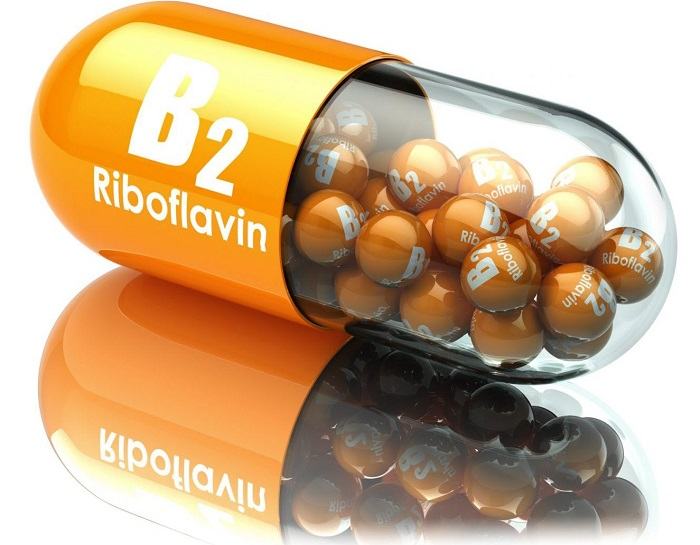
Vitamin B2
Vitamin B2 is a water-soluble vitamin, so it dissolves in water. All vitamins are either water-soluble or fat-soluble. Water-soluble vitamins are transported through the bloodstream, and any unneeded substances are excreted with the urine. People need to take vitamin B2 every day because the body can only store small amounts, and resources are depleted rapidly. Riboflavin is naturally present in some foods and is added to others as a supplement. It is more absorbed in the small intestine.
Role
Vitamin B2 helps break down proteins, fats, and carbohydrates. It helps to maintain the body's energy.
Riboflavin helps convert carbohydrates to adenosine triphosphate (ATP). The human body produces ATP as needed body energy through food. The combination of ATP is vital for storing energy in muscles.
Along with vitamin A, vitamin B is essential for:
• Preservation of mucous membranes in the gastrointestinal tract
• Maintain a healthy liver
• Conversion of tryptophan to niacin, an amino acid
• The health of eyes, nerves, muscles, and skin
• Absorption and activation of iron, folic acid, and vitamins B1, B3, and B6
• Hormone production by the adrenal glands
• Prevent the development of cataracts
• Fetal growth, especially in areas where vitamin deficiencies are common
Some research suggests that vitamin B2 may help prevent cataracts and migraine headaches, but further studies are needed to confirm this.
Other studies have found that in children with autism, supplements of vitamins B2, B6, and magnesium appear to reduce the levels of abnormal organic acids in the urine.
Sources
Sources of B2 include:
• Fish, meat, and poultry, such as turkey, chicken, beef, kidneys, and liver
• Eggs
• Dairy products
• Asparagus
• Artichokes
• Avocados
• Cayenne
• Currants
• Fortified cereals
• Kelp
• Lima beans, navy beans, and peas
• Molasses
• Mushrooms
• Nuts
• Parsley
• Pumpkins Rosehips
• Sage
• Sweet potatoes
• Cruciferous vegetables, such as broccoli, Brussels sprouts, spinach, dandelion greens, and watercress
• Whole-grain bread, enriched bread, and wheat bran
• Yeast extract
Vitamin B2 is water-soluble, so cooking foods can cause it to be lost. B2 is lost through boiling as it is through steaming or microwaving.
How much do we need?
According to Oregon State University, the recommended daily allowance (RDA) of vitamin B2 for men aged 19 years and over is 1.3 milligrams per day, and for women, it is 1.1 milligrams per day. Women should take 1.4 milligrams and 1.6 milligrams per day during pregnancy and breastfeeding, respectively.
Deficiency
Vitamin B2 deficiency is a significant risk factor for health because the human body constantly excretes the vitamin, and it is not stored. A person with B2 deficiency typically lacks other vitamins, too.
There are two types of riboflavin deficiency:
Primary riboflavin deficiency occurs when a person's diet is poor in vitamin B2.
Secondary riboflavin deficiency occurs since the intestines cannot absorb the vitamin properly or the body cannot use it, or it is excreted too quickly.
Riboflavin deficiency is also known as riboflavin.




